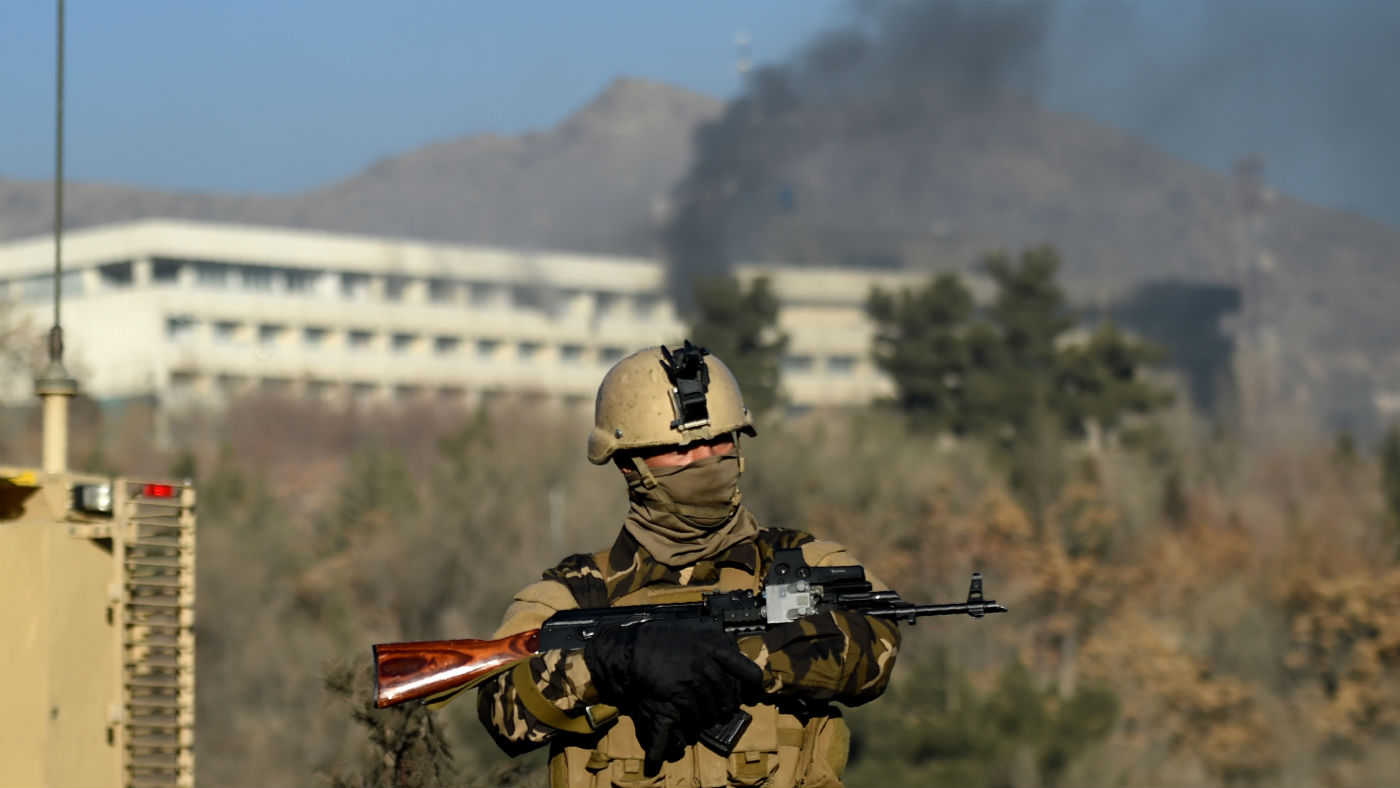Foreigners targeted in Afghan hotel massacre
The Taliban has claimed responsibility for an attack on the Kabul Intercontinental, which left 40 dead

A free daily email with the biggest news stories of the day – and the best features from TheWeek.com
You are now subscribed
Your newsletter sign-up was successful
More than 40 people, including 14 foreigners, have been confirmed dead, following a hotel siege which began on Saturday night in Kabul.
An official for the Afghan government told Fox News bodies are still being discovered, and the final death toll may not be known for a while.
Eye witnesses told Reuters that five men dressed in army uniforms had entered the Intercontinental Hotel late on Saturday, shouting in Pashto: “Don’t leave any of them alive, good or bad. Shoot and kill them all.” They then opened fire on guests.
The Week
Escape your echo chamber. Get the facts behind the news, plus analysis from multiple perspectives.

Sign up for The Week's Free Newsletters
From our morning news briefing to a weekly Good News Newsletter, get the best of The Week delivered directly to your inbox.
From our morning news briefing to a weekly Good News Newsletter, get the best of The Week delivered directly to your inbox.
Another survivor said the attackers had deliberately targeted foreigners during the 13-hour siege. It was ended by Afghan and western special forces, who raided the hotel and killed all five insurgents. Around 160 people were rescued by Afghan troops who fought throughout the night to regain control of the building.
Kabul police have confirmed that nine Ukrainians, one German, one Greek and one Kazakh citizen are among the dead. At least two are yet to be identified.
The Taliban, which targeted the hotel in 2011, has claimed responsibility for the attack. In a statement quoted by AFP, the group said it had “killed tens of foreign invaders and their puppets”.
Promising an investigation into how the attackers breached security, the interior minister said the decision to transfer security to a private company two weeks ago had been a mistake, after reports emerged that guards had fled without a fight.
A free daily email with the biggest news stories of the day – and the best features from TheWeek.com
The Intercontinental, one of two luxury hotels in the city, is frequented by government officials and foreigners, “and was thought to be well protected”, says The Guardian.
The raid is the latest in a series of attacks in and around Kabul “that have underlined the city’s vulnerability and the ability of militants to mount high-profile operations aimed at undermining confidence in the Western-backed government”, says Reuters.
At least 150 people were killed last May when a road-side bomb was detonated outside the German embassy in the Afghan capital.
President Ashraf Ghani said militant groups were being helped by neighbouring countries, adding: “As long as the terrorist groups have secure protection and safe haven, the region will not find security and stability.”